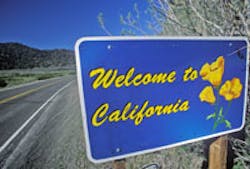Editorial: Should California hygienists 'secede' from ADHA? Probably not
The California Dental Hygienists’Association (CDHA) announced in a Facebook post last week that the state would terminate its charter with the American Dental Hygienists’ Association (ADHA).
The state association said the charter agreement “would have imposed significant new obligations on both CDHA and its Components while providing virtually no additional benefits.”
The proposal by the leadership of the CDHA has to be approved during the state’s house of delegates meeting in Fresno in June. Other than this Facebook post, the CDHA hasn’t said much, indicating that the discussion will continue next month during the meeting.
The ADHA hasn’t said much either, but the national association did respond to the CDHA Facebook post.
Follow the money, uh, tax trail
Although the CDHA has remained somewhat tightlipped about its actions other than the Facebook post, there have been some indications that the federal Internal Revenue Code 501(c)(6) is a factor. Does the arrangement between the ADHA and its state and local associations pose any legal concerns in terms of the Internal Revenue Service?
Tens of thousands of trade associations file for tax exempt status under IRC 501(c)(6). The ADHA essentially follows the same tax rules, for example, that the National Football League followed for years. The NFL endured much criticism for being a nonprofit organization in 2014 before dropping the tax-exempt status in 2015. The NFL controversy was a single incident rather than a broader indictment of the tax code. Football fans disliked the greed often associated with owners of NFL franchises. Other than the IRS being criticized for its scrutiny of conservative political groups during the tenure of the Obama administration, there are very few controversies associated with the IRC 501(c)(6) tax status.
However, in a Sept. 2014 editorial about the NFL situation, an editorial in Forbes recommended repealing the IRS code. The article said:
“Trade organizations are not themselves trying to make money, but their members are trying to make money for themselves. Trade organizations do not get tax deductible charitable deductions, but the dues they collect will probably be deducted by members as ordinary and necessary business expenses. I don’t see what the policy rationale is for allowing organizations like that to accumulate tax free profits. If they operate at about a breakeven, which is probably what the dues paying members would prefer, they don’t need exempt status. If they are profitable they don’t deserve exempt status.”
The IRS generally examines executive compensation during audits of nonprofit associations. When the CEO or executive director earns a suspicious amount of money in comparison to counterparts, for example, the red flags go up for the IRS. The related IRS regulation states, “Trade associations and professional associations are business leagues. To be exempt, a business league's activities must be devoted to improving business conditions of one or more lines of business as distinguished from performing particular services for individual persons.”
There has not been any indication that anyone involved with the ADHA is a red flag.
On DentistryIQ.com last week, part of California dental hygienist’s Cathy Draper’s alert to members of her constituent society was published. After some parts of the 501(c)6 code was reformed, Draper reported that the ADHA reviewed the changes and considered whether the “tripartite” system (national, state, and localized associations) should continue.
The ADHA believes compliance with the federal tax code can continue to be achieved, expending many resources to keep the state associations informed about every step. In addition, the ADHA’s charter agreements with states allow for some flexibility on how the smaller constituent societies can be handled in order to maintain compliance with IRC 501(c)6.
Are dues worth it?
As the CDHA said in its Facebook post, “Like many of you, CDHA has for some time questioned whether the benefits provided by ADHA justify the dues ADHA imposes.”
Should a state dental hygiene association be able to question how membership dues are being spent by the national association? Yes. Who could logically argue otherwise?
The ADHA is hosting a “town hall” Webex on May 24 in an attempt to change the minds of dissident California dental hygienists. While it’s too early to tell if they will be successful or not, the national association will likely try very hard to be completely transparent about the benefits earned by members in California and other states. So, that would be a positive development; the ADHA ensures to its membership that dues are well spent.
All dental hygienists should have the ability to question whether ADHA dues have a value to themselves, the profession, and oral health care in general. All dental hygienists should be able to draw a reasonable conclusion about how their dues are being spent, including whether the expenditures help their communities, or are totally irrelevant to the region where they practice dental hygiene.
Fortunately, or perhaps unfortunately depending on your viewpoint, there is a system already in place to help address these issues. It’s called voting. Dental hygienists who are members of the professional association can vote for representation within their association.
California’s dental hygienists have presumably voted for representation that seeks more accountability from the national organization. It didn’t get it, according to the state’s leadership. So, we have ended up with a Facebook post indicating that California is going in its own direction.
Is this a good thing? Probably not. Dental hygiene needs a national voice for the profession. The dental profession is evolving rapidly, and there should be a national consensus about the role of dental hygienists during this evolution. We need the innovation that California dental hygienists bring to oral health care. Whether they care to admit it or not, California needs the rest of us too.
For the most current dental headlines, click here.
About the Author

Mark Hartley
Mark Hartley is the editor of RDH magazine and collaborates with Kristine Hodsdon on many of the articles for RDH eVillage, which also appear on DentistryIQ.com.

